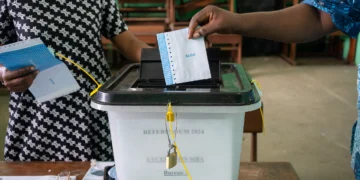By John Ikani
The Nigerian government has instituted a series of measures aimed at boosting local industries and reducing the importation of foreign goods.
In a recent directive, the federal authorities banned the importation of used vehicles that are more than 12 years old.
The move is expected to create opportunities for local car manufacturers and bolster the country’s economy.
Along with the ban on used cars, the government also released a revised list of imports that are prohibited.
This includes several medications such as chloroquine tablets and syrup, paracetamol tablets and syrup, cotrimoxazole tablets and syrup, and metronidazole tablets and syrups.
The ban also extends to tablet and syrup forms of paracetamol, which are commonly used in the country.
The list also includes various vitamins and minerals, as well as waste pharmaceuticals, magnesium trisilicate tablets and suspensions, piperazine tablets and syrups, and levamisole tablets and syrups.
In addition, the government has prohibited the importation of penicillin/gentamycin ointments, pyrantel pamoate tablets and syrups, intravenous fluids (dextrose, normal saline, etc.), and mineral or chemical fertilisers containing nitrogen, phosphorus, and potassium.
To further promote local industries, the government has introduced a new tax system for imported vehicles.
The new tax law, which takes effect on June 1, 2023, will impose an Import Adjustment Tax (IAT) of 2% on imported vehicles with engines ranging in size from 2000cc to 3999cc.
Also, vehicles with engines larger than 4000cc will be subject to a higher rate of IAT.
This new tax is in addition to the existing 35% import duty and 35% levy that importers already pay.
However, the IAT levy will not apply to vehicles with engines smaller than 2000cc, public transportation buses, electric vehicles, or cars made locally.
The government hopes that these measures will encourage the production and purchase of smaller, more fuel-efficient vehicles in the country.
As part of its efforts to increase revenue, the government will also charge a new tax on imported alcoholic beverages.
According to the circular sent to all Ministries, Departments, and Agencies by the Federal Ministry of Finance, Budget, and National Planning, imported wine, stout, and beer will be subject to a tax of N75 per litre in 2023 and N100 per litre in 2024.
This is a departure from the previous ad valorem taxation system, which imposed customs duties proportional to the estimated value of the goods or transaction in question.
Finally, the Buhari administration has also introduced a 10% excise duty on single-use plastics like plastic bags, films, and containers as a green tax.
This measure is aimed at reducing the use of plastics in the country and promoting sustainable practices.



































